Dr. Emiliano T. Hudtohan, AB, BSE, MA, EDD
Jose Rizal University, Philippines
Philippine Christian University
Accepted: 12.5.2021
Representative e-Mail: emiliano.hudtohan@jru.edu
ABSTRACT
As the year 2021 comes to a close we look forward to a New Year 2022. In retrospect, we reflect on our experience with COVID 19 that altered and disrupted our normal way of life. Every New Year is an opportunity to make a good prospect for a better tomorrow. This lecture discusses the end of Great Period Change (1987–2023) as a window of hope for us to emerge victorious against the challenges we face as we embark in the era of a New Normal. The road map for the education sector presented by the World Economic Forum specifically challenges the education sector to address 1. Creativity and innovation, 2. Global citizenship and local civic responsibility, 3. Digital technology; and 4. Interpersonal and intrapersonal relationships as major skills to be addressed to cope with the New Normal environment. Erwin Laszlo 2025 road map for a new enlightened civilization in 2025 is presented as a vital guide for humanity to move forward as we emerge from chaos, as the Great Period of Change ends in 2023.
Key words: new normal, great period of change, creativity and innovation, global citizenship, digital technology, intrapersonal and interpersonal relationships, chaos, retrospect and prospect.
.INTRODUCTION
The New Year 2022 is almost a month away. And we ask what is in store for us in 2022. For sure we are hopeful it will be a prosperous and a happy New Year. The question then is how can we be prosperous and happy in the coming year. In retrospect, COVID 19 has made us less prosperous and some were unhappy. Let us then map out our prospects by meeting the New Challenges in the New Normal in 2022. The road map that I will present is culled from World Economic Forum and from Irwin Laszlo’s Chaos Point. By looking back in retrospect, we can make good prospect for 2022 and beyond, because it is written in the stars (cosmology) that the Great Period of Change ends in 2023.
II. OBJECTIVES
This lecture aims to: 1 Explain that the year 2022 is ushering us toward the end of Great Period Change (1987–2023), giving us hope to emerge victorious against the challenges we face. 2. Present lessons from our past and immediate experiences in coping and surviving life-threatening circumstance. 3. Provide a road map in facing the challenges of the New Normal.
III. METHODOLOGY
This lecture makes use of qualitative research (Marshall & Rossman, 2011); it is based on key documents that provide an understanding of the challenges that we face in the New Normal in 2022. It is heuristic (Moustakas, 1990) because it provides the researchers and the webinar academic audience to discover and learn something for themselves in understanding our current precarious situation and our envisioned new state in the future. It makes sense of the past experiences (Bloch, 1962; Jenkins, 2003).) with the challenges of COVID 19 in order construct a new paradigm (Smith, 2015; Sela-Smith, 2002; Hudtohan, 2005; Gonzalez, Luz, & Tirol, 1984) that will enlighten us to accept the New Normal conditions in 2022. The methodology is multi-valuate (Richardson, 2015) presentation deals with various disciplines related to our strategy for prosperity and happiness in the New Normal in 2022. This is an exploratory discourse (Stebbins, 2011) to study, examine, analyze and investigate the need for change in managing the issues and challenges of 2022
IV. DISCUSSION
In Retrospect
Great Period of Change
Marinoff (2007). in his book, The Middle Way, cited four ideograph that triggered four great civilizations. These are: Hellenic, Abrahamic, Sinic, and Vedic great ideas that flourished around the world. The onset of Cartesian philosophy triggered a rational approach to human thinking paradigm that was anchored on logic and reason. Rene Descartes was a leading figure in a Rational Civilization. Newtonian physics that explained the laws of Nature triggered a Scientific Civilization. The colonial period was the age of exploration of natural resources. With abundant resource it propelled an Industrial Civilization. This was followed by a Global Civilization in the age of multinational corporations operating worldwide. By this time overproduction and overconsumption have created an ecological crisis. Laszlo (2006) averred humanity has reached Chaos Point, forcing us to break down or make a break through. Visionaries are optimistic we will survive the Great Period of Change (1987-2023) leading humanity to a New Enlightenment. This I call a Spiritual Civilization, which is preceded by the Ecological Civilization, leading to the new world after the Great Period of Change.
End of the Period of Change
The big picture on what is happening today is that we live in a Great Period of Change which began in 1987 and ends in 2023 (Page, 2012; Jenkins, 2012; 1998, Braden, 2009; Laszlo, 2006). What then do we expect at the end of this Great Period of Change? Christian Page says, “The Mayan calendar saw the beginning of an extraordinary journey of 36,000 years for the earth and its inhabitants, which reaches its conclusion just before 2020. For the first time in 26,000 years, the sun is most closely aligned with Great Cleft, Dark Rift or the Black Road of the Milky Way. (Page, 2008).
The year 2023 appears to be the end of the dark tunnel. We will make a breakthrough (Laszlo,2006) As we come close to 2023, the end of the Great Period of Change, our present state I consider Global Civilization is moving towards a new era of New Enlightenment (Page, 2012). Ambassador Manalo (personal communication, July 31, 2921) during an interview with Sass Sassot SMNI Network, said that from the Cold War we moved to Globalization. However, she did not cite our new state of affairs that would follow Global Civilization we are experience today.
Current Prospects
Challenges in 2022
The World Economic Forum (June 2021), in Building Back Broader: Policy Pathways for an Economic Transformation, state that a new future of education and skills must address: 1. innovation and creativity, 2. Global citizenship and civic responsibility, 3. Digital technology, and 4. Interpersonal and intrapersonal
Creativity and Innovation. Basically, creativity and innovation mean “Thinking of novel ideas, improvements and solutions by combining ideas or information and making connections between different fields and perspectives. Includes skills such as: critical thinking, analytical thinking, creative thinking and systems thinking.” (WEF, p. 27) For example, the Triple Bottom-Line in 1987 and the Ecological Civilization in 2018 shows how critical thinking, creative thinking and systems thinking have been used for the four decades (1987-2012) in viewing and reviewing role of business, society and government in protecting Planet Earth. prehensive approach to sustainable development.
Global citizenship and civic responsibility. This means “Making decisions and creating appropriate and sustainable solutions based on cross-cultural and geopolitical awareness, a differentiated notion between local and global contexts and an understanding of the human impact on the environment and society. Includes skills such as: Social-cultural awareness, Technological awareness, and Environmental awareness.” (WEF, 2021),
The United Nations states that “Global citizenship is the umbrella term for social, political, environmental, and economic actions of globally minded individuals and communities on a worldwide scale. The term can refer to the belief that individuals are members of multiple, diverse, local and non-local networks rather than single actors affecting isolated societies. Promoting global citizenship in sustainable development will allow individuals to embrace their social responsibility to act for the benefit of all societies, not just their own.” (https://www.un.org/en/academic-impact/global-citizenship). Another definition is:” Global citizenship is all about encouraging young people to develop the knowledge, skills and values they need to engage with the world. And it’s about the belief that we can all make a difference. (Oxfam).
Shaw (2000) says, “Global citizenship is the idea that one’s identity transcends geography or political borders and that responsibilities or rights are derived from membership in a broader class: humanity. This does not mean that such a person denounces or waives their nationality or other, more local identities, but that such identities are given ‘second place’ to their membership in a global community.”
In general usage, the term may have much the same meaning as world citizen or cosmopolitan, but it also has additional, specialized meanings in differing contexts. Various organizations, such as the World Service Authority, have advocated global citizenship.
Digital Skills. Digital skills mean “understanding and applying ever-evolving digital technology tools, systems and software responsibly, ethically, creatively and inclusively across work processes and activities to solve problems, analyze and interpret data and communicate effectively. It includes skills such as: Technology design and programming, Technology 2018) use, monitoring and control.” (World Economic Forum, 2021, p. 27). With the help of technology, the number of tasks needed in the classroom in real-time can be addressed online. It also helps teachers communicate any change in the tasks they are doing no matter where they are. It has brought a good amount of change in the way leaders communicate and deal with their employees. Technology enables personalized pathways for student learning through active and collaborative learning activities. Clearly defined sets of learning outcomes guide instruction. (http://www.sba.oakland.edu › TechnologyLeadershipText)
Interpersonal and Intrapersonal Skills. Basically, Interpersonal and intrapersonal Relationship means “Managing emotion and motivation and applying emotional intelligence to collaborate effectively with others and achieve both personal and communal goals. Includes skills such as: active listening, communication and information exchange, leadership and social influence and self-management.” (WEF, p.27)
The need for Connectivity of Adaptive Leadership Behavior to Teacher Development: Perspective and Prospects for Digital Learning (Jerusalem & Hudtohan, 2021). They observed that, “The Age of Digital Technology requires a new paradigm in teacher education in online learning; it, alters the learning patterns and behaviors of students. Hence, there is a need for teacher-learning connectivity in virtual learning. It is proposed that teacher development in embracing Adaptive Leadership to be connected with students in online classroom interaction.” (Jerusalem & Hudtohan, 2021).
What can be done? The World Economic Forum suggests that “ensure that everyone has access to skills for economic transformation and recovery? Efforts thus far have mainly focused on continuing learning by transitioning old models to online formats. While these immediate measures were urgently needed to prevent further widening of education and skills gaps, long-term and systemic investment in new economy skills will be needed.” (WEF, p. 27).
Future Prospects
New Worldview 2025
A worldview is the set of beliefs about fundamental aspects of Reality that ground and influence all one’s perceiving, thinking, knowing, and doing (Funk, 2001). One’s worldview is one’s philosophy, philosophy of life, mindset, outlook on life, formula for life, ideology, faith and religious belief. For me it is a platform upon which an individual becomes a member of a spiritual civilization.
According to Funk, “The elements of one’s worldview, the beliefs about certain aspects of Reality, are one’s: epistemology: beliefs about the nature and sources of knowledge; metaphysics: beliefs about the ultimate nature of reality; cosmology: beliefs about the origins and nature of the universe, life, and especially man; teleology: beliefs about the meaning and purpose of the universe, its inanimate elements, and its inhabitants; theology: beliefs about the existence and nature of God; anthropology: beliefs about the nature and purpose of Man in general and, oneself in particular; and axiology: beliefs about the nature of value, what is good and bad, what is right and wrong. Worldview is the set of beliefs about fundamental aspects of Reality that ground and influence all our perceiving, thinking, knowing, and doing. Our worldview consists of our epistemology, our metaphysics, our cosmology, our teleology, our theology, our anthropology, and our axiology. Each of these subsets of our worldview is highly interrelated with and affects virtually all of the others.” (Funk, 2001).
Laszlo (2006) asserts that “in the third decade of the twenty-first century…the view of people is united in rejecting the mechanistic and fragmented concept of world and self that was the heritage of the Industrial Age. A new view is emerging: Humans are organic wholes within an organic biosphere in the embrace of an organically evolving universe.” (p.42-43).
Metaphysically, individual existence and community development are inherently intertwined with nature. New consciousness dictates that they longer believe they are free to manipulate the environment, in the hope that nature will take care of itself or new technologies will take care of nature. The Newtonian mechanistic view of reality is now transcended because the universe is not a passive bystander watching human actions, and individual actions have an immediate impact on the environment. Subtle ties bind human being to one another, to the biosphere and to the cosmos as a whole. Lovelock (1972) says that the atmosphere and biosphere is the lungs of Mother Earth; the trees, plants and vegetation are her skin; the rivers, lakes and oceans are her blood system; and the minerals and rocks are her bones. She is alive and she is now a stakeholder of life, just like us. She is present as energy pulsating in our humanness, in our relationships with one another, the Earth and the Galaxy. Gaia’s relevance is even more crucial in addressing global warming and climate change. Gaian energy is a beautiful balancing force of male energy. (Hudtohan, 2017).
The Institute for the Future (2009) affirms Laszlo’s world view 2025. The report says that “A collapsing economy paves the way for discovering new kinds of value in all forms of interaction – from the microscopic scale of atoms to the macrocosms of human connections with each other and the planet they inhabit. Look at the coming decade from the perspective of millennia of change. Focus on the progress of the universe from the breakthrough structures of the atom to the living cell, the biota, the human body, the community of nations, the global economy. This is how the future will be new, by continuing the incredible experiment of reorganization for greater complexity, by creating the next astonishing structural forms in this long evolutionary path.”
In conclusion, Bluestone observes that “Western and Chinese alchemist had one thing in common…the smallest object of material reality was a reflection of a larger cosmic whole. Monk Basil Valenti the human body was a microcosm of the universe. In the Chinese Tao, everything on earth was a reflection of its divine form.” (Bluestone, p. 62).
Life Style 2025
The life style in 2025 announces a renaissance of spirituality as well; women and men are rediscovering a higher or deeper dimension of their lives and existence. According to Laszlo, “people live simply than those who can afford luxurious life style in the late twentieth and early twenty-first century. These are not imposed by poverty and they are not the consequence of rules and legislations or high taxes. They are voluntary result of a different mindset. For me, a spiritual higher view on what life is all about. People realize that a high material standard of living does not necessarily mean high quality of life.” (Laszlo, 2006, p. 44).
They have a healthier lifestyle in harmony with nature and the environment better than the Agricultural Civilization, Industrial Civilization, Global Civilization, and Digital Civilization that brought success, affluence and luxury. Individuals of 2025 belongs to the Ecological Civilization and Spiritual Civilization. They are healthier and they live longer, but do not contribute to growth of the population. Life ways are becoming ecologically sustainable. They are reoriented from aiming external growth to focusing on internal growth, shifting from aiming at conquest and consumption to wishing further the evolution of their thinking and behavior and the development of their communities. (Laszlo, 2006, p.45).
Pande and Vian (2009) aver that the citizen of the future will be “a native of the network and that changes everything. It tempers border-based boundaries. It refocuses political notion on issues that are both more local and more global at the same time. It links expressiveness to empowerment and turns the smart consumer o the early internet era into activist citizen of the coming decades. The network superstructs citizenship.” Harari (2016; 2018) affirms the role of technology in all aspects of the life of a 21st century human who has become a Homo Deus, interacting with artificial intelligence in a widely networked relationship.
Morality 2025
Laszlo (2006) believes that “Moral considerations inform the decisions people make in the private sphere as well as in the sphere of business and profession. In 2025 people agree that it is immoral to live in ways that reduce access for others in the resources required for a life l of basic dignity and wellbeing. The new morality is rooted in a universal principle: Live and act in a way that enables others to live as well. Live not necessarily in the same way but with a real possibility of satisfying basic needs and pursuing the ends of well-being and happiness.” (p. 45).
I would like to equate wellbeing of Laszlo with the wellbeing of Dyck and Neubert (2012). The various forms of wellbeing are: Physical: health, safety, Emotional: stress, positive feelings, work-life balance, Material: productivity, efficiency, profitability, Social: nurture community, social justice, help disadvantaged, Intellectual: coherent ideas, clear rationale, sound theory/logic, Aesthetic: beauty, elegant products/services, appealing workplace, Ecological: natural environment, sustainability, minimize pollution, Individual: self-interested self and stakeholders, and Spiritual: meditation, guided by spiritual truths/forces.
Clearly humanity has learned that wellbeing is total human development and material wellbeing is only part of our human existence. Teilhard de Chardin, Wayne Dyer, and Stephen Covey are said that: We are not humans with spiritual activities. We are spiritual beings with human activities. This maxim is being taken seriously by people in the year 2025.
Decision-making and Security 2025
Laszlo (2006, p. 46) says, “The political world is globalized, but it is locally diverse; it is networked, but not monolithic. Sovereign nation states, has given way to a transnational system organized as a Chinese box of decision-making forums, with each forum having its own sphere of authority and responsibility.” This vision is shared by Jake Dunagan (2009) who says, “To survive the 21st century, humanity must undertake a massive, collective program to redesign our basic government structures at every level – based on the emerging technologically and cosmologically powerful understandings of life and the universe available.”
Laszlo continues, “The 2025 world is not a hierarchy but a ‘hererarchy’: a multilevel sequentially integrated structure of distributed decision-making. It is aimed at global coordination combined with regional, national, and local self-determination. The global level is the highest level of decision making, yet it is the lowest level at which peace and security can be ensured and global flow of goods, money and technology can be monitored. The regional level is indicated for decisions that coordinate the social and political aspirations and concerns of nations within the given regions Regional economic and social organizations provide the forum for the elected representatives of the member nations to consider and harmonized the interests and aspirations of their population. The national level Is appropriate for most of the functions traditionally performed by national government but without claiming absolute sovereignty for the nation-state and with due regard for decisions made in other forums in direct consultation with their inhabitants. The local level of decision making brings together the elected representatives of urban and rural communities. They coordinate the workings of the social and political towns, villages and rural regions in direct consultation with their inhabitants.” (p. 2006, 46).
Yuval Noah Harari (2016) has pronounced us as Home Deus. But Bruce Lipton (2021) reminds us we originally came from a one-cell amoeba until that amoeba that progressively developed into a monkey species, which Charles Darwin claimed as the basis Homo Sapiens. Then, we progressed to an Agricultural Civilization, Industrial Civilization, Global Civilization, Digital Civilization and Ecological Civilization. The future points toward a Spiritual Civilization at the end of 2023 in the Age of New Enlightenment.
Figure 1: Agricultural Civilization.
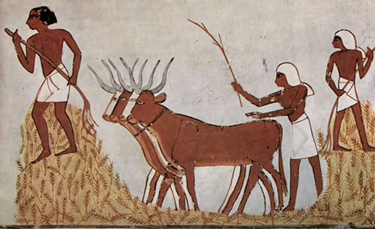
Figure 2: Industrial Civilization

Figure 3: Global Civilization
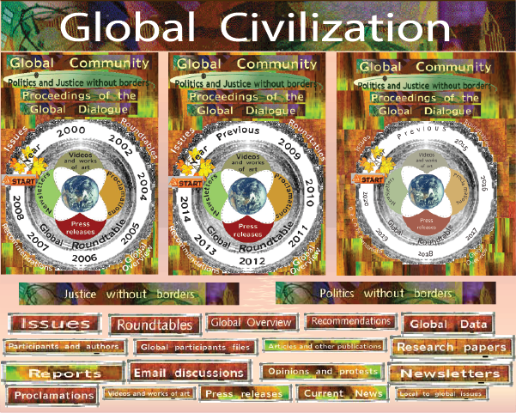
http://globalcommunitywebnet.com/Dialogue2018/Newsletters/August2017/vision2024.html
Figure 4: Digital Civilization (Bedlam: 2019)
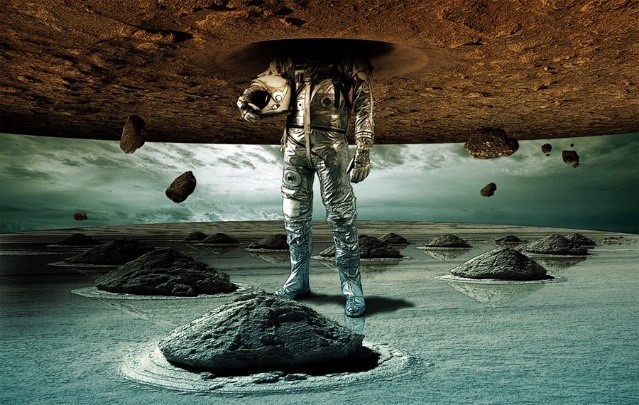
Figure 5: Ecological Civilization and Sustainable Development (Pan Xiang-chao, 2018)
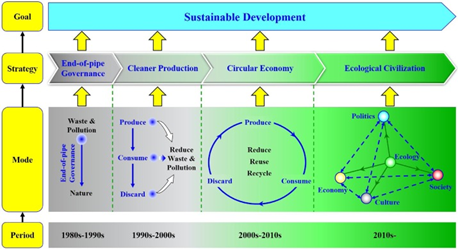
(https://www.sciencedirect.com/science/article/abs/pii/S0921344919305609)
Figure 6. History of Evolution (Lipton, 2021)
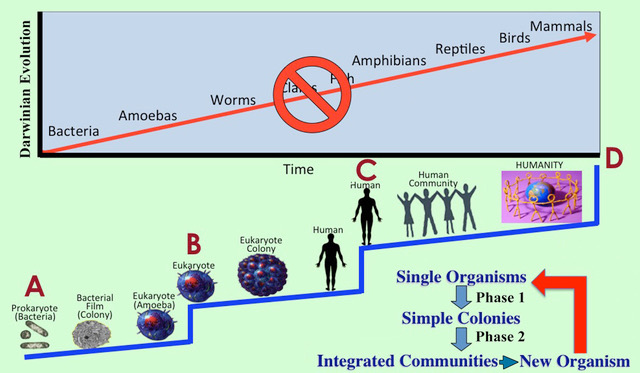
Figure 7. Homo Deus (Harari, 2016)
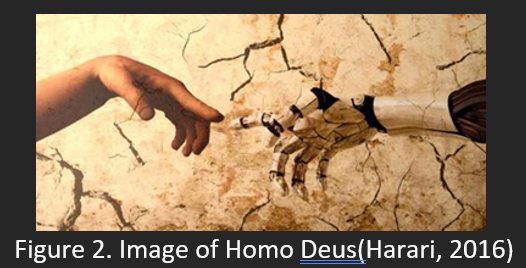
Figure 8: Spiritual Beings: Chardin, 2021; Dyer, Covey, and Gurdjieff
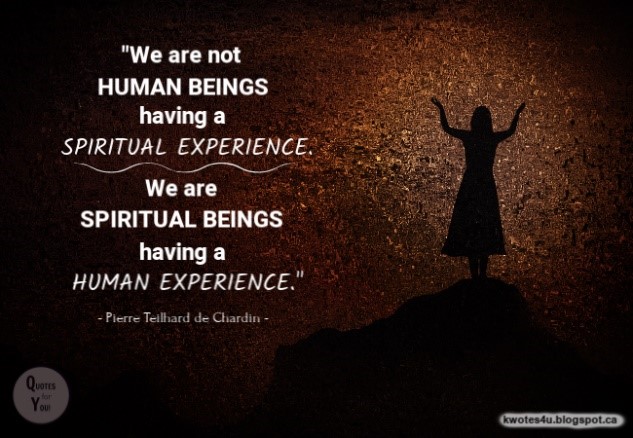
V. CONCLUSIONS
- The New Year 2022 ushers in the last year of the Great Period of Change (1987-2021). The Galactic entry into the Black Hole is about to end and as we exit, we begin to exist in a New Enlightenment. Cosmologist tell us this will bring a new frame of mind of humanity.
- Western and Eastern gurus assert that we the human body is a microcosm of the universe. In the Chinese Tao, everything on earth was a reflection of its divine form.
- The New Normal, after COVID 19, calls for skills in a. creativity and innovation, b. global citizenship and local civic responsibility, c. interpersonal and intrapersonal relationships, and d. digital savvy. The Age of Digital technology forces us to interact with AI machines. Thus, we become Homo Deus. We were Homo Sapiens and before that Darwin claimed we came from the species of the monkeys. Today, Bruce Lipton goes further to say that our life started as amoeba.
- The Old World went through Agricultural Civilization, Industrial Civilization, Global Civilization, Ecological Civilization. We are moving toward Spiritual Civilization at the end of the Great Period of Change in 2003.
- The New World described by Erwin Laszlo is a picture with New Worldview, New Life Style, New Morality, and New Decision and Security envisioned in 2025.
- Ahead of us is a future that is making a breakthrough and we will not breakdown in meeting the challenge of our planetary existence. To survive we must now bring ourselves to emerge at a New Level as Spiritual Beings.
REFERENCES
Bedlam. (2019). The Golden age of Digital Civilization. Onevan.
Bennett, N. & G. James Lemoine, G.J. (2014) What VUCA Really Means for You. Harvard Business
Review.
Bloch, M. (1962). The historian and his craft. Trans. Peter Putman. NY: Alfred A. Knopp.
Bluestone, S. (1997). Signs of the times. New York: Berkley Publishing Group
Bonewitz, P. & Bonewitz, I. (2007). Real energy: Systems, spirits, and substances to heal, change and
grow. Franklin Lake, NJ: The Career Prism, Inc.
Braden, G. (2009). Fractal time: The secret of 2012 and a new world age. CA: Hay House, Inc.
Brundtland, G. (1987). Report of the World Commission on Environment and Development: Our Common
Future. United Nations General
Centre for the New Economy and Society. (June 2021). The World Economic Forum Building Back
Broader Policy Pathways for an Economic Transformation: Community Paper.
Chardin, T. de. (2021). In Spiritual Awareness / Awakening Quotes.
Dunagan, J. (2009). Post-Newtonian Governance. Ten-Year Forecast. Perspectives 2009 www.iftf.org.
Dyck, B. & Neubert, M.J. (2012). Management. Singapore: Cengage Learning.
Dyer, Wayne. (n.d.). Wayne W. Dyer > Quotes > Quotable Quote.
Funk, K. (2001). What is a Worldview? https://web.engr.oregonstate.edu/~funkk/Personal/worldview.html
Gonzalez, A. Luz, J.M. & Tirol, M.H. (1984). De La Salle mission statement: Retrospectiv and prospect.
Quezon City: Vera Reyes, Inc.
Hanson, A. (December 2019). Ecological Civilization in the People’s Republic of China: Values, Action,
and Future Needs ADB East Asia working paper series, No. 21.
Harari, Y. N. (2016). Homo deus: A brief history of tomorrow. London: Vintage.
__________. (2018). 21 lessons for the 21st century. London: Jonathan Cape.
__________. (2015).. Homo deus: A brief history of humankind. UK: Vintage.
Hudtohan, E. T. (2005). 50 years of De La Salle catechetical program: Retrospect and prospect. Retrieved
___________. (2017). Moral Beauty: Prospect for Business Ethics. Journal of Business Research and Development. San Beda College Graduate School of Business
Jerusalem, V. & Hudtohan, E.T. (2021). Connectivity of Adaptive Leadership Behavior to Teacher Development: Perspective and Prospects for Digital Learning. Paper to be presented December 16, 2021 at the Webinar sponsored by IAMHRD.
Jenkins K. (2003). Re-thinking history. London : Routledge.
Jenkins, J.M. (1998). Mayan cosmogenesis 2012. Rochester, Vermont: Bear & Company.
Shaw, M.(2000). Global Society and International Relations: Sociological and Political Perspectives. Cambridge: Polity Press
Lipton, B.H. (2021). Humanity as Superorganism: Our Hopeful Future. Great Transition Stories.
Lovelock, J.E. (1972). Gaia as seen through the atmosphere. Atmospheric Environment (Elsevier) 6(8):
Marshall, C. & Rossman, G.B. (2010). Designing qualitative research. 4th ed. London: Sage Publication.
Marinoff, L. (2007).The middle way. NY: Sterling.
Mustakas, C & Douglas, B. (1989). Heuristic inquiry: The internal search to know. Jounal of Humanistic
Psychology. 25 (3).
Pan Xiang-chao. (2018). Research on Xi Jinping’s Thought of Ecological Civilization and Environment
Sustainable Development. IOP Conf. Ser.: Earth Environ. Sci. 153 062067.
Page, C.R. (2008). 2012 and the galactic center: the return of the great mother. Rochester, Vermont:
Bear & Company.
Pierre Teilhard de Chardin? Wayne W. Dyer? Stephen R. Covey? Georges Gurdjieff? Anonymous?
https://quoteinvestigator.com/2019/06/20/spiritual/. Retrieved December 4, 2021.
Richardson, M.H. (2015). The quantum God: An investigation of the image of God from Quantum Science. A masteral thesis. St. Mary’s University. Halifax. Nova Scotia
Sadar, Z & Abrams, I. (2004), Introducing chaos. UK: Icon Books, Inc.
Sela-Smith, S. (July 2002). Heuristic Research: A Review and Critique of Moustakas’s Method
Journal of Humanistic Psychology 42(3):53-88.
Smith, J. (2015). Business research methodology. New York: Arcler Press LLC.
Stebbins, R.A. (2011). What Is Exploration? In: Exploratory Research in the Social Sciences
London: SAGE Publications, Inc. City: Thousand Oaks
You Are Not a Human Being Having a Spiritual Experience. You Are a Spiritual Being Having a Human Experience: Pierre Teilhard de Chardin? Wayne W. Dyer? Stephen R. Covey? Georges Gurdjieff? Anonymous?https://quoteinvestigator.com/2019/06/20/spiritual/
Dr. Emiliano T. Hudtohan, an axiologist, earned his doctorate in values formation at De La Salle University, Manila, Philippines. He teaches at Philippine Christian University and Jose Rizal University. He is an external thesis and dissertation panelist at De La Salle Araneta Univeristy. He was management development consultant of Metrobank and training director of Malayan Insurance Company. He is Cofounder and Vice President of the International Association of Management and Human Resource Development (IAMHRD) in Indonesia and the Editor-in-Chief of International Journal of Management Education and Human Development (IJMEHD). He is an advisory board member of the Management Journal at OP Jindal University Business Review, India; and Member of Jose Rizal University Guided Research Program, Philippines. He is member of the Board of Benita Catalino Yap Foundation. His field of interest and expertise is business ethics, aesthetics, spirituality in the workplace and corporate social responsibility.




Leave a Reply
You must be logged in to post a comment.